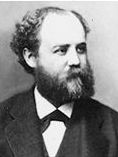CRIME, encouraged by defective and unexecuted laws, fostered by political partiality, and sheltered in the guise of wealth, spreads it baneful influence everywhere, threatening church and state, social security and family growth.
The murderer’s knife or subtle poison adds its horrors to police news. But there is a crime as far spread as society itself. It is dead, finds no funeral pomp, no mourning friends, no christian burial. No monumental slabs inscribe their names; no solemn cemetery shelters their remains. Out of the homes of luxury, as well as from the hovel, they are taken unnamed, unknown, unloved. The cesspool or the dissecting knife hushes all suspicion. We may count the white sepulchers, and approximate to the dead which the sea has claimed; but could the unnumbered host, ushered into the world before their tender forms were fully moulded, speak to us, what a fearful tale of parental degradation would be theirs!
Rightly does the medical profession, denounce, as murder, the production of abortion, unless justified by the impossibility of live birth. But is it ever justified on any other grounds? We had thought not until we learned that the “offspring has no right to life without the consent expressed or implied in the sexual relation of both parties” (see Amer. J.H.M.M., Vol, V., No.3 p.122 ). The writer here, of course, refers to a particular class of cases presenting itself, “though rarely for our consideration and action.” He states that a guiltless woman is violated and pregnancy follows. The discovery of her situation entails a life of disgrace for her and her family, and he comes to the above astounding conclusion!
He adds, “she has a right to relief, and her physician is right in granting it.” The relief of the injured woman from the burden of a pregnancy which is hateful to her, which has been forced upon her, and which she has a right to throw off…. as soon as it shall please her,” and “to save her from the disgrace of the publicity of her misfortune,” are his reasons for terming this justifiable foeticide. He believes it “right in the sight of God and in the judgment of men of good conscience and sound mind”. And the “Society” accepted his article.
Is life the gift of man, and can he take it for social or any other reasons? Who shall foretell the destiny of the forthcoming child? Even though the distressing ban of illegitimacy be upon him, may it not be his cross, which bearing, he may rise above the sneer of society which our author so fears, and grace the noblest office of humanity? Or if he but walk humbly through life, true in his lowly condition, shall we deny him a hereafter, where having been faithful over a few things, he becomes ruler over many? Where both he and his unfortunate mother no longer bow beneath the curse of exposure and illegitimacy but having borne their crushing burden faithfully, “enter into the glory of their Lord”? Is the woman any the less wronged if she destroys her “hateful” charge? Society is shocked, but the still small voice of a religious conscience tells her to live on, trusting to Him who alone gives life and who alone may take it living above reproach, and teaching her illicit child the same faith that strengthens herself.
We can point to one case as touching on the one hand as it was fiendish on the other. But, to-day, the child her woman’s heart must love, supports her in the old age, and is an ornament to society and the favorite of his employers. Until it can be proved that this man must die because of his unbidden birth, we must call it murder to destroy the foetus under similar circumstances of conception, for they differ only in time, and time is nothing in eternity.

